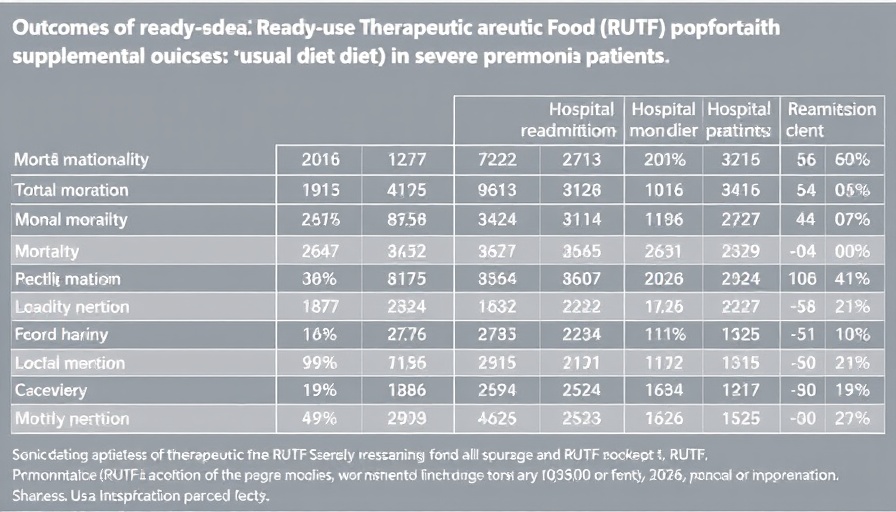
Understanding Intuitive Eating: A New Paradigm
Intuitive eating (IE) represents a cultural shift in eating habits, focusing on listening to our bodies' signals rather than adhering strictly to dietary restrictions. In Saudi Arabia, a new study employing the Saudi Arabic Intuitive Eating Scale - 2 (IES-2) explores this method and assesses its prevalence across various sociodemographic factors. This research is crucial, especially given the alarming statistics revealing more than 60% obesity rates among adults in the region. With rising rates of illnesses linked to excess weight, adopting IE can potentially counteract this concerning trend.
The Socio-Demographic Influences on Eating Behavior
The study highlighted significant associations between sociodemographic factors and intuitive eating behaviors. Various aspects such as age, employment, educational levels, and gender play essential roles in shaping how individuals engage with food. For instance, the average respondent's profile included 57.9% women, with a notable 31.83 ± 11.06 years average age. There were critical insights linked to gender-specific responses, particularly regarding emotional eating versus eating driven by physiological cues. This creates a compelling call for tailored approaches to education and interventions that resonate with distinct populations.
Cultural Implications of Intuitive Eating Strategies
Culturally customized interventions are necessary to promote intuitive eating effectively. Traditional philosophies around food and diet need to morph to embrace practices that not only respect but also promote naturally occurring biological hunger cues. Emphasizing aspects such as community and shared meals could help incorporate IE principles into everyday eating.
Integrating Nutritional Science with Intuitive Eating
Intuitive eating is not only a lifestyle choice but also intersects significantly with nutritional science. Supplements like Omega-3 for longevity and resveratrol can play complementary roles in supporting nutritional choices aligned with IE practices. For example, Omega-3s have been shown to positively influence mood and brain health, potentially affecting emotional eating patterns. Moreover, understanding key supplements, including collagen for aging and adaptogens for health, can empower individuals further in their nutritional journeys.
Future Directions: Exploring IE and Nutritional Health
The promising preliminary findings of this research compel a call to action. Continued exploration of intuitive eating within the Saudi context is vital for public health initiatives. Implementing longitudinal studies could unravel deeper insights into IE practices' effectiveness and sustainability in promoting healthier lifestyles. There's also a need to educate the youth about managing expectations surrounding food and health without resorting to stringent dieting, especially in a society grappling with high obesity rates.
Conclusion: A Complete Approach to Wellness
As health-conscious individuals navigate their well-being journeys, integrating the principles of intuitive eating with awareness of nutritional science, such as the benefits of NAD+ supplements and CoQ10, can forge a more sustainable path to health. Adopting a mindset that appreciates both the body’s internal cues and the external benefits of nourishing supplements will significantly impact overall vitality.
If you want to explore how these dietary improvements can enhance your well-being, consider seeking further insights from health professionals or research studies focused on nutrition and longevity. The journey to a healthier you can be both fulfilling and empowering.
 Add Row
Add Row  Add
Add 




 Add Row
Add Row  Add
Add 


Write A Comment